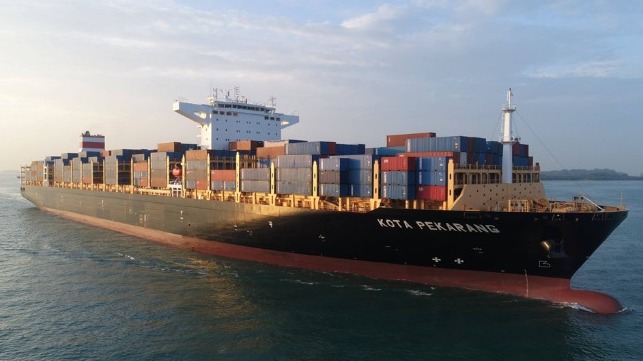Pacific International Lines Completes $600M Financial Restructuring

The financial rescue of Singapore-based Pacific International Lines (PIL) has been completed with new investments and the cancelation of portions of the company’s outstanding debt. The line, which is the largest carrier in Southeast Asia, had been struggling financially and was forced to seek a court-managed reorganization due to the pressures of the pandemic.
Under the terms approved by the line’s creditors, Heliconia Capital Management, which is owned by Temasek Holdings, the Singapore government’s investment arm, made a $200 million investment in the company in the form of convertible preference shares. Heliconia becomes the majority shareholder in the company diluting the position held by the family of founder Teo Siong Seng to approximately 15 percent of the company.
Heliconia also established a $200 million revolving credit facility and a $200 million term loan for PIL. Also, as part of the court-approved scheme, PIL issued approximately $155 million in option securities and was permitted to markdown and cancel approximately $45 million in bonds that had been due in 2020.
“The completion and successful implementation of our restructuring is a chance for renewal in PIL, and the Company is now well-positioned for sustainable growth,” said S.S. Teo, who will continue as Executive Chairman of PIL. “Going forward, we will continue to improve our business operations, deleverage the balance sheet and reinvent ourselves as we adapt to the ever-changing market. On behalf of the Board, I wish to thank Heliconia and our creditors for their firm commitment and their faith in PIL.”
The 50-plus-year-old container line had spent most of 2020 seeking to come up with an agreement on a rescue plan for its operations. In May 2020, they reached a standstill agreement designed to give the company time to negotiate the restructuring, but in November they went into technical default on the bonds when the company said it was unable to proceed with repayment on the notes as they came due.
Over the past few years, PIL has been in declining financial health in part due to increased competition on routes, overcapacity, and lower profits. The company sought to reduce its leverage by selling vessels and withdrawing from some routes, before filing for a reorganization in the courts. The financial strains compounded by the pandemic were too severe for the upturn in the container markets in the latter part of 2020 to dramatically improve the company’s outlook.
Incorporated in 1967, PIL developed from a coastal shipowner and operator into a significant regional operator focusing on Asia, Africa, the Middle East, Oceania, and Latin America. With a fleet of approximately 100 containerships, bulkers, and multi-purpose vessels, Alphaliner ranks PIL as the twelfth largest carrier with a capacity of approximately 250,000 TEU.
